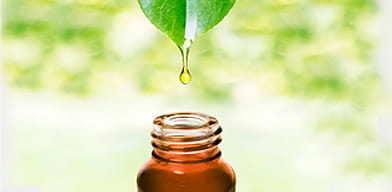
Berberine facts
Berberine is a yellow-colored compound found in several plants, including barberry, goldenseal and Oregon grape. It's traditionally been used as a remedy for diarrhea in China, but ever since researchers accidentally discovered its hypoglycemic (blood-sugar-lowering) effects, there's been a lot of interest in berberine as an antidiabetic agent.
Promising studies
A number of clinical trials have found berberine to be an effective treatment for type 2 diabetes. In one involving 116 type 2 diabetics with high cholesterol, those receiving 1 g/day of berberine saw significant reductions in their hemoglobin A1c (HbA1c) levels compared with those taking a placebo. HbA1c levels reflect blood sugar control, and so are used to diagnose and manage diabetes. The berberine takers also had reduced levels of cholesterol and triglycerides (fats) in their blood, which are usually raised in type 2 diabetics.
In another placebo-controlled trial, berberine was able to lower levels of free fatty acids in the body---known to be toxic to the pancreas and to cause insulin resistance. "Berberine might play a pivotal role in the treatment of type 2 diabetes", the researchers concluded.
Berberine vs metformin
Berberine has also been pitted against the diabetes drug metformin---with impressive results. In a small 'pilot' (preliminary) study, 36 newly diagnosed diabetics were given either 500 mg of berberine or metformin three times a day. After three months, both treatments worked equally well for blood sugar control: levels of fasting blood sugar, postprandial (after eating) blood sugar and HbA1c were all significantly reduced. But berberine had additional beneficial effects on total cholesterol and triglycerides that metformin didn't.
In a larger trial, berberine not only had a blood-sugar-lowering effect on a par with metformin, but the herbal compound was also just as effective as the antidiabetic drug rosiglitazone (Avandia). "We strongly suggest berberine as an ideal medicine for type 2 diabetes," the researchers stated.
How might it work?
A number of lab studies support these findings and also suggest the possible mechanisms behind berberine's hypoglycemic effects. Some studies point to its ability to boost insulin secretion, while others suggest that its anti-inflammatory action might be key.
According to one group of scientists, berberine's effects on blood sugar may be a side-effect of its antimicrobial activity. They reckon that the herbal compound may be killing off certain gut bacteria that play a role in inflammation and insulin resistance.
Safety and side-effects
In general, berberine appears to be safe, although it can cause minor stomach problems like bloating, constipation and diarrhea. But these tend to be resolved by reducing the dosage.
In contrast, metformin is associated with a potentially life-threatening condition called 'lactic acidosis'---a buildup of lactic acid in the blood. Although rare, it has a death rate of 30--50 per cent,7 so metformin now comes with a warning about acidosis as well as a laundry list of contraindications (conditions in which the drug should not be used because of possible harmful effects).8 More common adverse effects include vomiting, diarrhea, abdominal pain and taste disturbances.
Rosiglitazone, the other drug berberine has been compared with for efficacy, is actually no longer on the market in Europe because it increases the risk of heart attack and stroke.
But there are some concerns with berberine too. It hasn't been studied as much as metformin and other drugs and, so far, it's still not known whether it's safe to take for diabetes in the long run. There's also the potential for the compound to interact with other medications.
Reviewing the evidence
Berberine seems just as effective as metformin for lowering blood sugar in type 2 diabetics, and has the added benefit of improving fat metabolism. This, coupled with its good safety profile, makes berberine a promising alternative to the diabetes drug, especially as metformin has numerous contraindications.
But the research is still in its early days, with most of it being done in China, so we still need to see how berberine fares as a long-term treatment in different ethnic diabetic populations.
If you do wish to try berberine to treat your type 2 diabetes, you should do so only under the supervision of a qualified, experienced medical herbalist, who can advise on the proper dosages and on drug interactions.
But don't forget the importance of diet and exercise---especially if you're on the cusp of developing type 2 diabetes. The evidence is clear that lifestyle changes can be even more effective than metformin in stopping 'prediabetes' from becoming full-blown diabetes.
What Doctors Don't Tell You
June 2016
Who will benefit from berberine? Those with prediabetes and those who are insulin resistant. How do you know if you're insulin resistant from bloodwork? Increased cholesterol, high LDL, Low HDL, high triglycerides, high glucose, high insulin, and most important factor is high Hemoglobin A1C. Eliminating simple sugars and grains will also compliment the use of berberine for these patients. Medications like Statins, Beta blockers, Lasix, and steroids are well known to cause diabetes too. Your GENES aren't your destiny, your lifestyle is.
Dr. J





